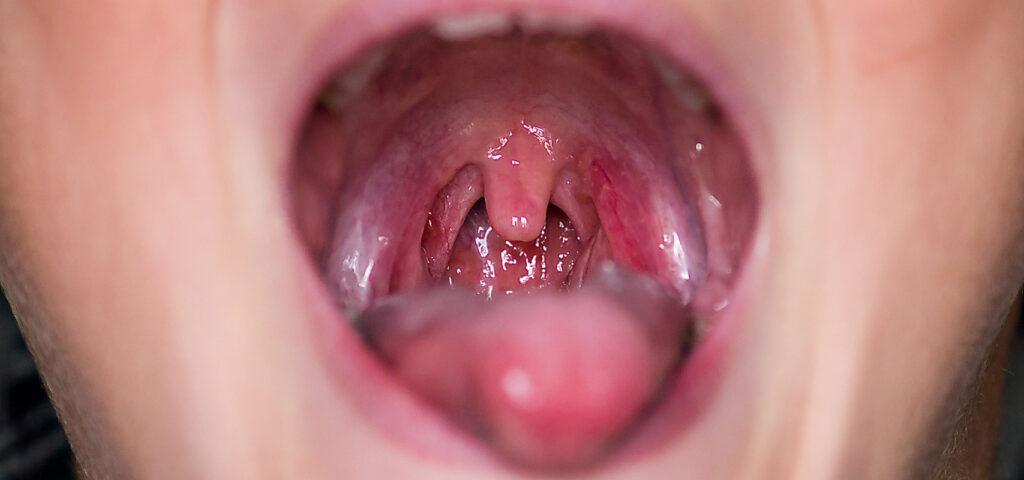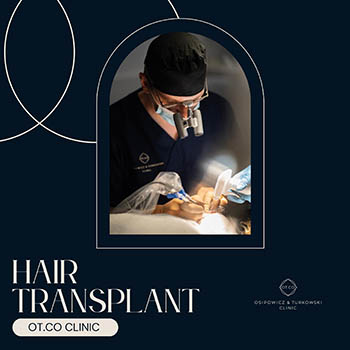TL;DR:
- Tonsils are lymphoid tissue in the pharyngeal ring, serving as the first line of immune defense by recognizing and neutralizing pathogens.
- Tonsils are critical for immunity in children but less so for adults. Recurrent inflammation can impair their function.
- Indications for tonsillectomy: chronic/recurrent tonsillitis, sleep apnea, swallowing/speaking difficulties, or suspected cancerous lesions.
- Benefits of tonsillectomy include fewer infections, improved breathing/sleep, better quality of life, and reduced risk of complications (e.g., abscess, rheumatic fever).
- Preparation: Medical consultation, diagnostic tests, avoid specific meds (e.g., aspirin), fasting 6-8 hours before surgery, and post-op home care setup.
- Recovery: 2 weeks; manage pain with medications, eat soft/cool foods, avoid physical strain, and follow instructions to avoid bleeding risks.
- OT.CO clinic specializes in safe, patient-focused tonsillectomy with experienced ENT specialists.
Excision of the tonsils is one of the most commonly performed ENT surgical procedures. The tonsils can be a source of health problems, such as chronic infections, breathing difficulties or sleep disorders. In such situations, the doctor may recommend removing them. The procedure known as tonsillectomy is performed on both children and adults. From our article you will learn what are the indications for tonsillectomy and how to prepare for this procedure. We encourage you to read it!
What are tonsils and what functions do they perform?
The tonsils are small structures made of lymphoid tissue, located in the throat and nasopharynx. The tonsils are part of the pharyngeal ring, which is the first line of defense against infections. The tonsils are part of the immune system, located in the upper respiratory tract – in the throat and nasopharynx. The most important of these are the palatine tonsils, the pharyngeal tonsil (called the third tonsil), the lingual tonsil and the tonsils of the trumpet. Together, these structures form Waldeyer's pharyngeal ring, which provides a protective barrier against microorganisms entering the body through the nose and mouth. Third tonsil – enlarged tonsil, in children – when to remove? Each of the tonsils has a characteristic structure. The tonsils are made up of lymphoid tissue, containing numerous lymph nodules and a network of blood and lymphatic vessels. The tonsils are richly vascularized and innervated, enabling an efficient immune response. The outer surface of the tonsils is lined by squamous multilayered epithelium, which facilitates contact with pathogens.
What functions do the tonsils perform?
The tonsils have an important function in the immune system, especially in the first years of life. They are the guardians of the immune system – they are the first to catch viruses and bacteria entering the body through the oral and nasal cavities. Their job is to recognize and neutralize microorganisms by initiating immune reactions. tonsillitis Lymph nodules in the tonsils contain lymphocytes that produce antibodies and stimulate the body's defenses. The tonsils are important in the formation of immunity in children, since the immune system is still developing intensively during this period. In adults, their importance declines, but they remain an important part of protection against infectious diseases.

Who should consider excision of the tonsils?
Although the tonsils play an important role in the immune system, in some cases they can sometimes cause health problems. Chronic inflammation of the tonsils, called tonsillitis, can cause sore throats, fever and weakness. In children, hypertrophy of the pharyngeal tonsil is common, which often leads to difficulty breathing through the nose and recurrent ear infections. Enlargement of the tonsils results in difficulty breathing and swallowing problems, and even sleep disorders such as sleep apnea. With tonsil hypertrophy and repeated inflammation, their protective function is impaired – in this situation, the doctor will consider surgical removal of the tonsils. Untreated tonsil problems adversely affect speech and hearing development in young children, and in adults increase the risk of dangerous complications, such as infective endocarditis. Tonsillectomy is recommended for chronic or recurrent infections when drug treatment has no lasting effect. Other indications include sleep apnea associated with tonsillar hypertrophy, difficulty swallowing or speaking, and suspected cancerous lesions. Removal of the tonsils can reduce the frequency of disease and the likelihood of complications. The decision to perform the procedure is made by an ENT doctor.
What are the benefits of tonsillectomy?
The tonsillectomy procedure, or tonsillectomy, brings about a significant improvement in quality of life, especially for those facing chronic tonsil-related health problems. In patients suffering from frequent tonsillitis or recurrent tonsillitis, removal of the tonsils eliminates the main source of infection. As a result of the procedure, patients notice an improvement in their health as they no longer experience bothersome symptoms such as sore throat, fever or enlarged lymph nodes. Another important benefit is an improvement in breathing and sleep quality, especially for those with hypertrophied tonsils that cause snoring and sleep apnea. Such sleep disorders can lead to chronic fatigue, concentration problems and an increased risk of cardiovascular disease. In children, hypertrophied tonsils can affect learning and concentration difficulties. After tonsillectomy, patients often notice significant improvements in nasal breathing, better sleep and increased energy levels throughout the day. Removal of the tonsils also avoids dangerous complications resulting from untreated inflammation. Infections of the tonsils can lead to peri-tonsillar abscesses, as well as cause rheumatic fever or infective endocarditis. Excision of the tonsils effectively reduces the risk of these serious health complications. Although tonsillectomy is a surgical procedure that requires adequate preparation and recovery time, the long-term benefits often outweigh the potential risks. It's worthwhile to consult with an OT.CO Clinic specialist and consider tonsillectomy, especially if these structures are a source of recurring health problems. tonsil stones – causes, symptoms, treatment.
How to prepare for the tonsillectomy procedure?
The first step in preparing for a tonsillectomy procedure is a detailed consultation with an ENT doctor. During the visit, the doctor will assess your general health, review your medical history, and perform the necessary diagnostic tests, such as blood count, coagulation test and ECG, if required. A few days before surgery, it is recommended to avoid medications containing acetylsalicylic acid, which can affect blood clotting. On the day before surgery, the patient should ensure adequate hydration and an easily digestible diet. It is advisable to abstain from eating and drinking for about 6-8 hours before surgery, as advised by the anesthesiologist, to avoid the risk of anesthesia-related complications. You should come to the surgery accompanied by a loved one who will provide support and help you return home after the operation. At home, you need to take care of the right conditions and arrange for help with daily activities during the first few days after surgery. Following your doctor's instructions in detail before and after surgery is important for a safe procedure and quick recovery.
How is recovery after tonsillectomy?
Recovery from tonsillectomy usually takes about two weeks. In the first few days after the procedure, you may experience a sore throat, sometimes radiating into your ears, which is a natural effect of the surgery. The pain is relieved with painkillers prescribed by the doctor. It is important to avoid aspirin and other pharmaceuticals that affect blood clotting, which increase the risk of bleeding. After surgery, you should take plenty of cool fluids to hydrate your throat. Do not consume hot drinks and spicy foods, which can irritate delicate tissues. Initially, soft, cool foods such as yogurt, ice cream, cream soups or purées are advisable. During the postoperative period, you should avoid strenuous physical activity, which increases the risk of wound bleeding. In the first few days, it is recommended to rest at home and gradually return to normal activities. A characteristic symptom during recovery is white plaque at the site of the removed tonsils. This is a normal stage of healing and should not cause concern unless accompanied by heavy bleeding. Intense bleeding, fever, severe pain despite medication and difficulty breathing require urgent medical consultation.
Why choose the OT.CO Clinic?
Choosing the right clinic for tonsillectomy is crucial for a safe operation and quick recovery. The OT.CO Clinic stands out for its modern approach to treatment, providing patients with access to the latest medical technology and the highest standards of care. Our team consists of qualified ENT specialists who have years of experience in performing tonsillectomy procedures in both children and adults. At the OT.CO Clinic, we focus on an individual approach to each patient – from a detailed medical consultation to comprehensive post-operative care. We are committed to making you feel cared for at every stage of treatment. Our procedures are based on the latest medical guidelines, which minimizes the risk of complications and ensures a quick recovery. Our priority is your safety and well-being. If you have any doubts or questions about the procedure, we invite you to a consultation – our specialists will be happy to answer your questions. Choose OT.CO Clinic if you want your health in the best hands!
Conclusion
Tonsillectomy can resolve chronic tonsil problems, improving health, breathing, and sleep. While tonsils play an essential role in early immunity, persistent issues like infections, breathing difficulties, or sleep apnea may require removal. Preparing properly and following recovery guidelines ensures a smoother experience. With expert care from clinics like OT.CO, you can regain comfort and quality of life. If tonsils are causing recurring health issues, consulting an experienced ENT specialist is the best next step.






